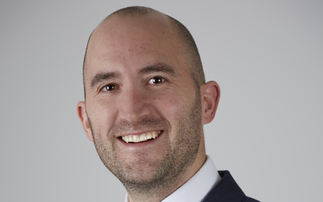
Barnett Waddingham's Simon Taylor
FTSE 350 companies with defined benefit (DB) pension schemes are still paying more into these schemes than their defined contribution (DC) counterparts, but the trend is likely to go into reverse as repair contributions reduce, latest Barnett Waddingham research reveals.
The consultant said FTSE 350 companies with a DB scheme contributed £14.4bn to those schemes in 2021 compared to just £9.6bn for DC schemes.
But it said that, of the figure for DB schemes, £9.8bn is being used to pay down past service deficits - largely paying for the historic promises made to ex-employees. It said just £4.6bn related to DB pension accrual - that is, building up DB pension for current employees.
Barnett Waddingham noted DC contributions had increased steadily over the past decade since auto-enrolment legislation was introduced in 2012, when contributions were £3.7bn - and it predicted that DC contributions would overtake DB contributions within the next five years.

Source: Barnett Waddingham
It said is partly due to deficit contributions falling over the next few years, as recent improvement in funding positions reduced the need for companies to plug DB scheme deficits.
Barnett Waddingham's most recent DB End Gauge Index, which calculates an estimated average time for FTSE350 DB pension schemes to reach a sufficient level of funding to buyout their liabilities with an insurance company, displayed an average time of 6.8 years at the end of August 2022. Additionally, it said the absolute cost of funding DB pension was anticipated to decrease if bond yields remain at current levels.
Despite the changing trend towards DC, Barnett Waddingham said the pension contributions for the FTSE350 companies with DB schemes provided a "stark illustration of the enduring intergenerational fairness debate".
Partner Simon Taylor commented: "In aggregate, these FTSE350 companies paid more to clear DB pension deficits over 2021 than the amount paid to fund DC pension savings for current employees. Despite the success of auto-enrolment, it is extraordinary that the promises made to (generally) former employees continues to account for higher expenditure than pension saving for current staff.
"Current DC members exist in a different financial reality, with a starkly different retirement outlook to current DB members. For companies with both DB and DC schemes, they must consider all of their stakeholders and decide upon the fairest and most prudent allocation of resource moving forwards."
Taylor added: "Crucially, if DC contributions remain at their current low levels, or worse, fall in light of the cost-of-living crisis, companies could find themselves with a cohort of workers who are unable to retire when they should.
"Companies must lean on data & analytics to assess the pension arrangements for current employees, how this might develop over time, and consider whether the current offering is appropriate. They might also want to think about an overall "pension budget" based on their current total pension spend, and consider what the best use of this capital will be as DB pension costs naturally fall away over time."






